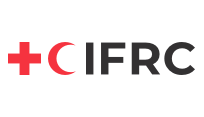T.47 Songs and Stories
Songs and Stories (e.g. story-telling or comics) are effective, fun methods for both adults and children; they can be used to stimulate discussions and summarise key information making it more memorable. The target groups can be involved in creating, singing, reading and narrating Songs and Stories about hygiene practices.

Songs and Stories are useful methods for increasing knowledge and sharing information, but may not result in immediate behaviour modifications. They can be used to address topics such as handwashing, personal hygiene, or the prevention of diseases and are most effective when people themselves are involved in their creation. Both children and adults usually enjoy Stories but the language should be appropriate for the age group. Rhymes, Songs and repetition can also help to reinforce behaviours. For adults, strong, impactful Stories on disease prevention can support behaviour change. Communities should develop Songs and Stories and can share them with others. Songs and Stories should be appropriate to the religious and cultural context, using the local language and traditional rhythms to make the Songs catchy. The content (the messages, information and key points) are of the utmost importance. Songs cannot change behaviour on their own - children and adults tend to remember the tune but forget the lyrics - so it is useful to use the tool in conjunction with other methods. Real-life scenarios, humour, the use of colour and pictures make Stories entertaining and attractive.
Applicability
Songs and Stories can be useful in all contexts. They can be applied at any scale but are usually more appropriate during the longer-term stabilisation and recovery phases. They might, however, provide solace and entertainment even during the acute response – especially for children. They can also be used as training tools, e.g. for training community mobilisers, or for hygiene promoters to initiate a discussion. The medium of communication may vary depending on the scale. Songs and Stories link well with Events T.11, such as World Handwashing Day.
Do
Ensure the key message of the Song or Story is clear and easy to grasp
Involve the community and creative local partners in their development
Engage the audience with up-to-date trends, e.g. flash mobs, rap music
Don't
Do not use Stories and Song that are irrelevant to the context, the situation and the culture
Do not use inappropriate language that is shaming, humiliating or belittling.
Practical Example
In Guinea-Bissau, UNICEF held a contest for teenagers and aspiring musicians to write and produce Songs about handwashing. The winners were given a chance to release their music on radio spots before Global Handwashing Day. The Songs have since become so popular that they are now played on radio stations across Guinea-Bissau.
In Cox’s Bazaar, Rohingya children became hygiene promotion ambassadors during the COVID-19 response by learning through Songs and Stories.
Key Decision Critria
Response Phase
HP Component
Target Group
Application Level
References Guidance and tips on using Songs and Stories for hygiene promotion
Oxfam (undated): Working with Children in Humanitarian WASH Programmes
Sarom, M. (2018): Going Viral to Promote Hygiene: Four Tips to Get a Million People Dancing to a Handwashing Song, WaterAid
Postma, L., Getkate, R. et al. (2004): Life Skills-Based Hygiene Education, IRC, UNICEF
Case studies from Bangladesh and Guinea-Bissau
Reidy, K. (2020): Rohingya Children Become Hygiene Promotion Ambassadors During COVID-19 Response in Cox’s Bazar, UNICEF
Da Gama, W. (2016): In Guinea-Bissau, Teenagers Sing the Praises of Handwashing





